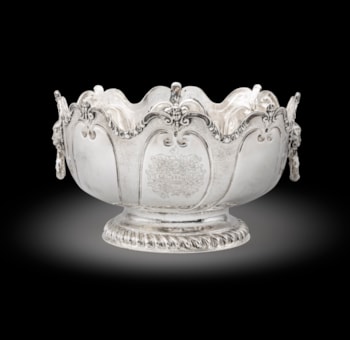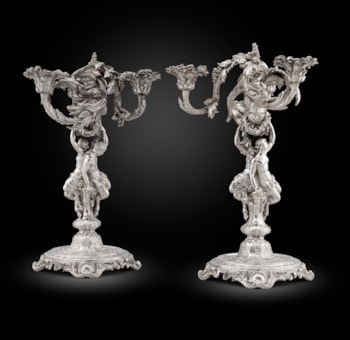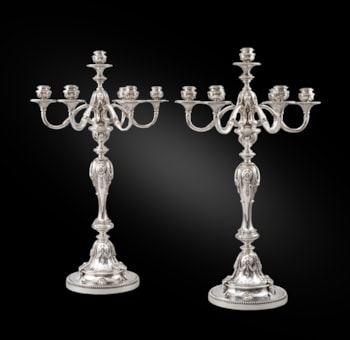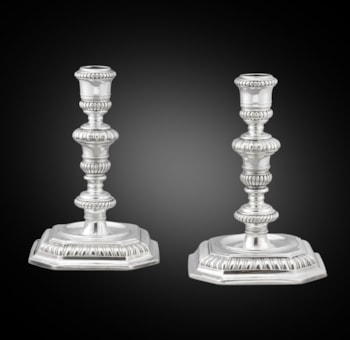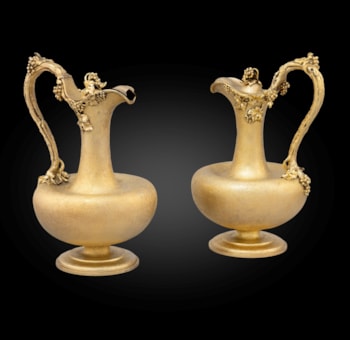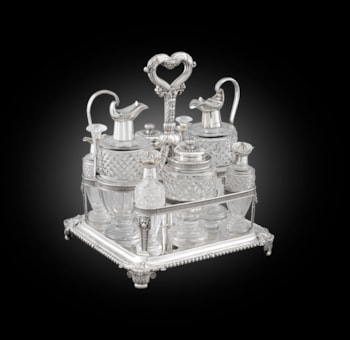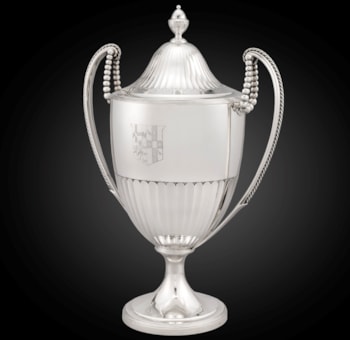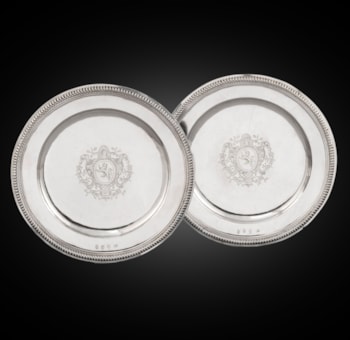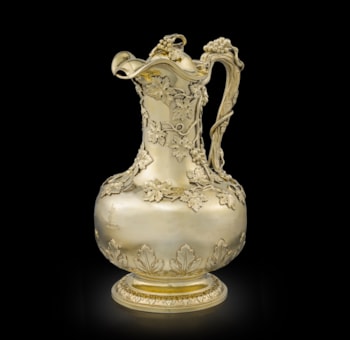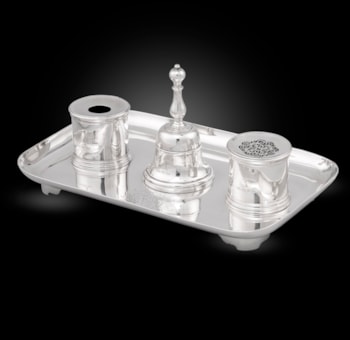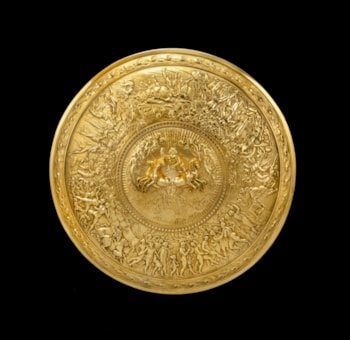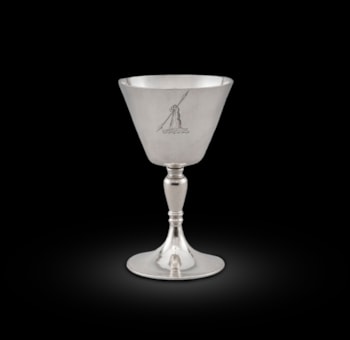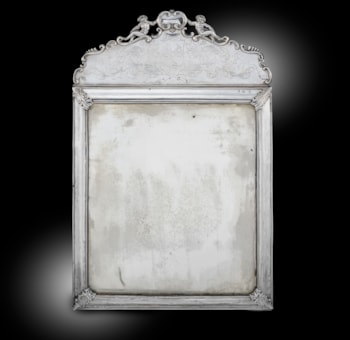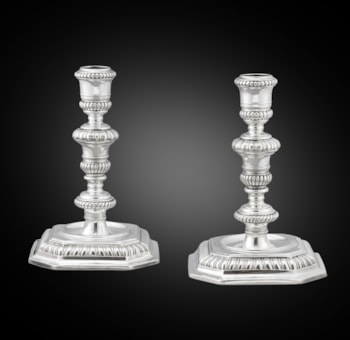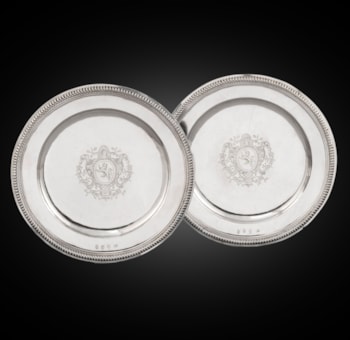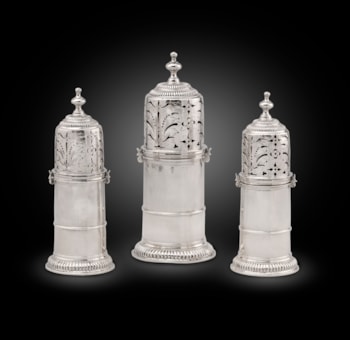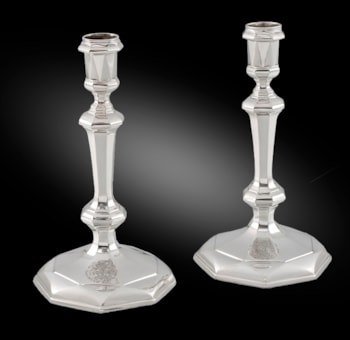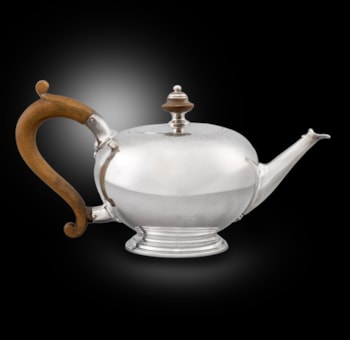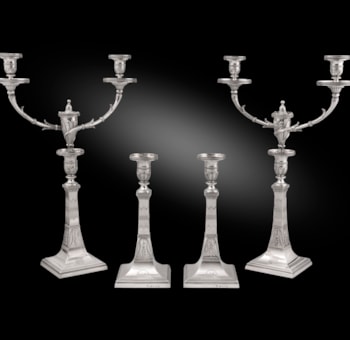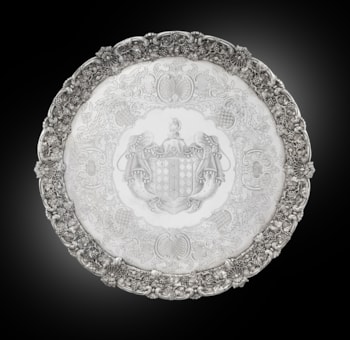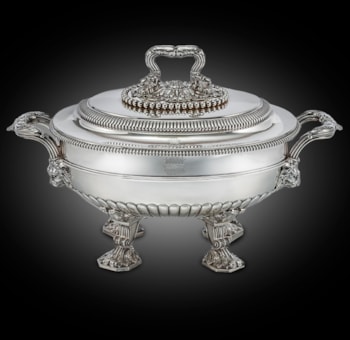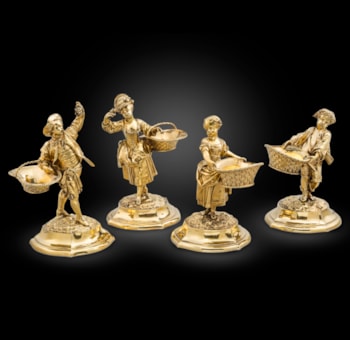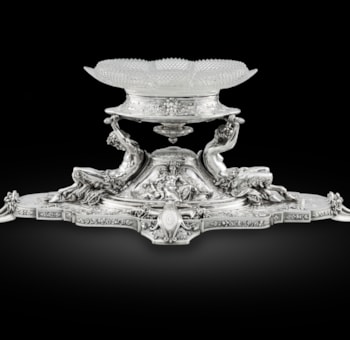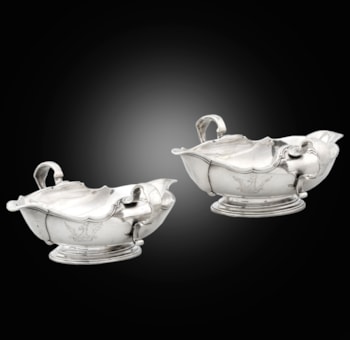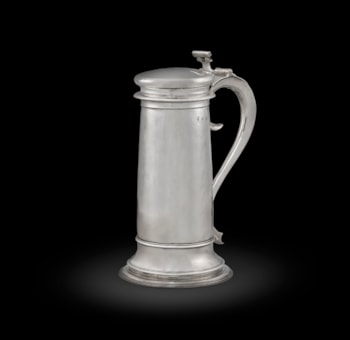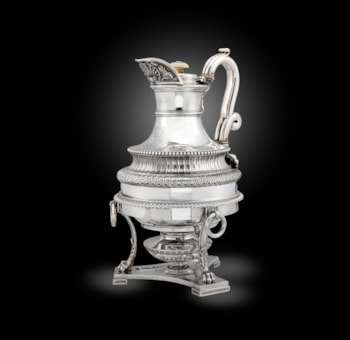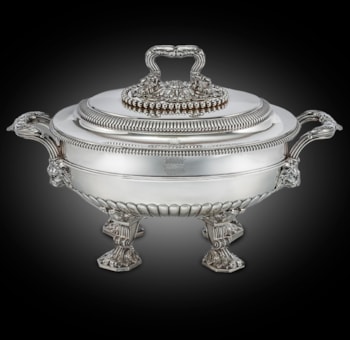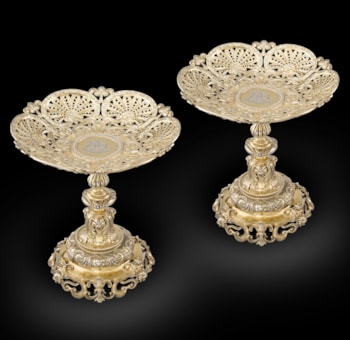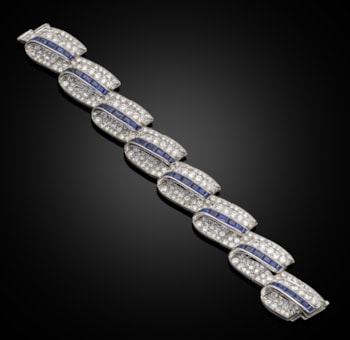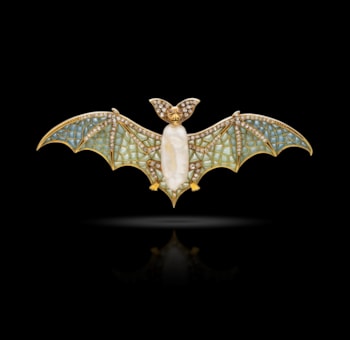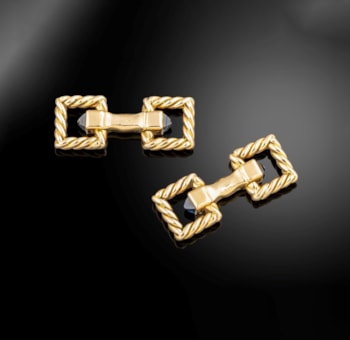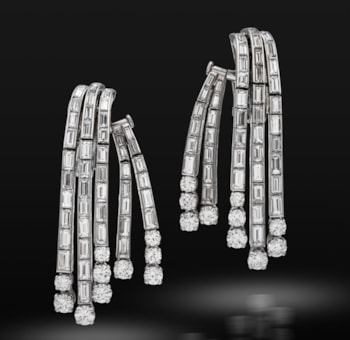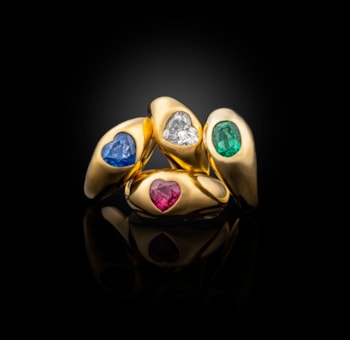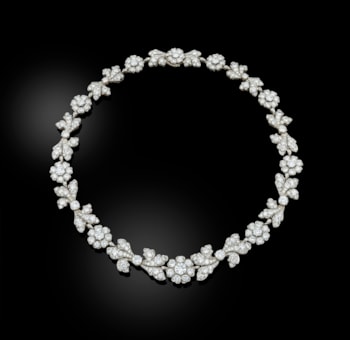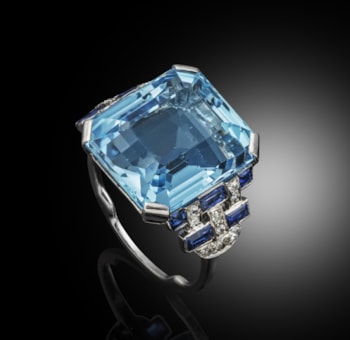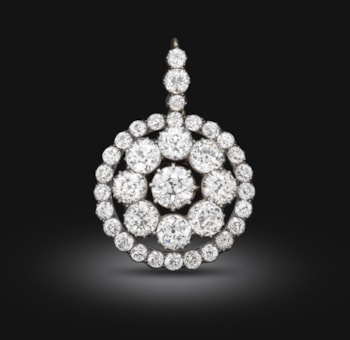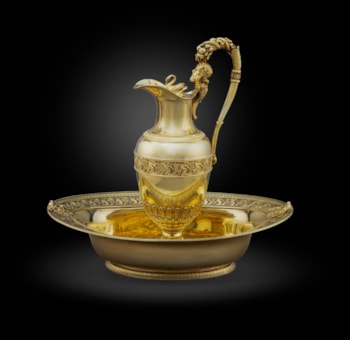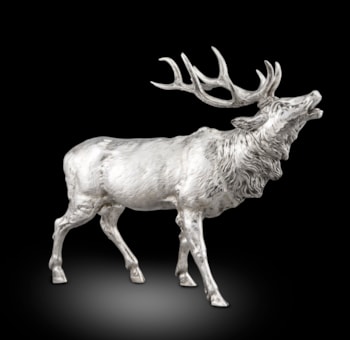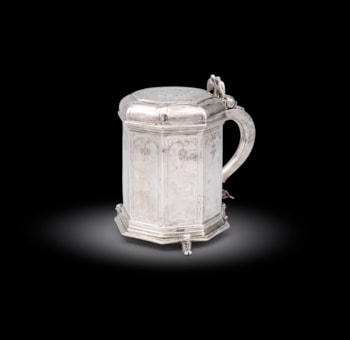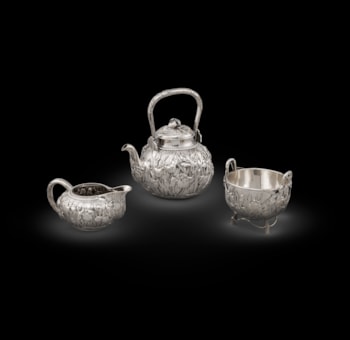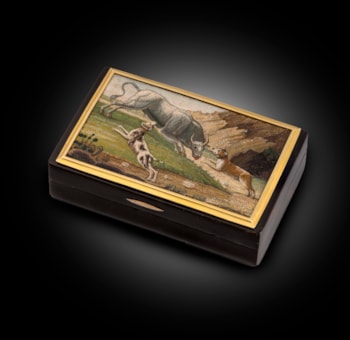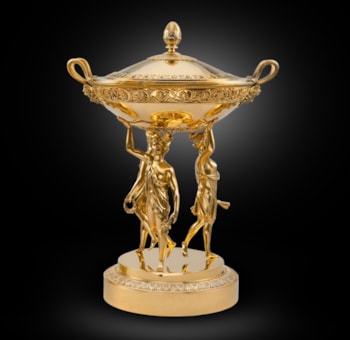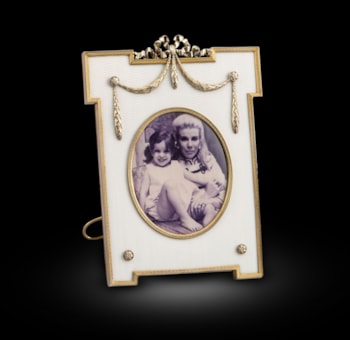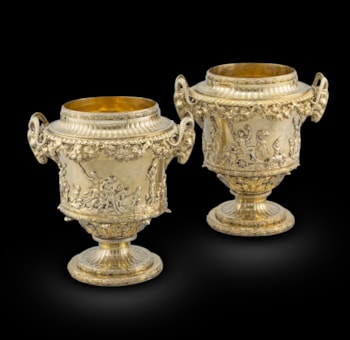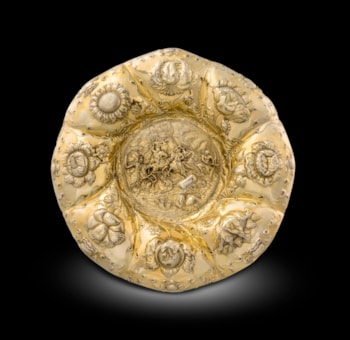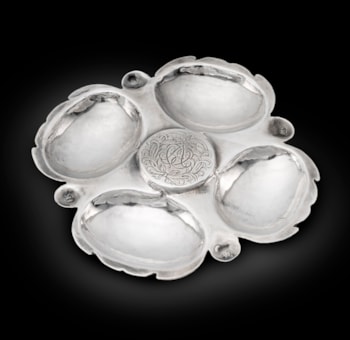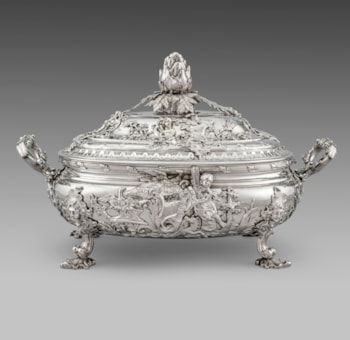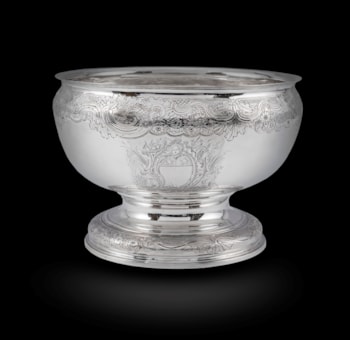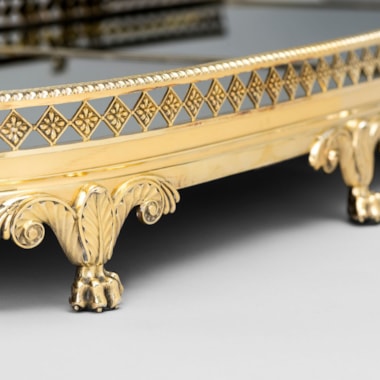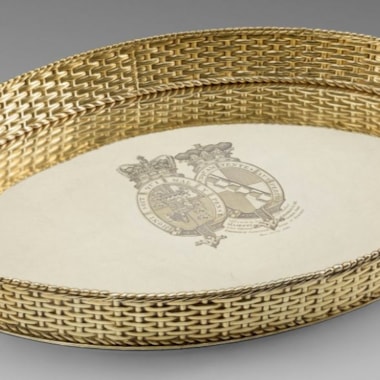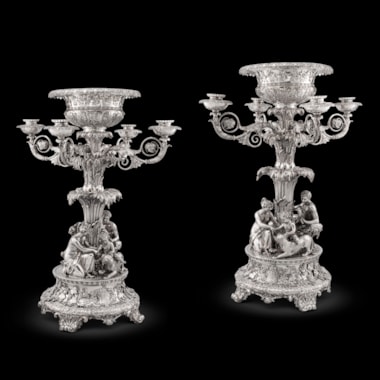The box oval, the lid inset with a miniature portrait on ivory of Frederick Augustus III, Elector of Saxony, attributed to the Saxon Court miniaturist Christian Gottlieb Doist (1740-1814), almost full face, with powdered hair en queue and wearing armour with a lacy jabot, within an engraved gold frame, the ground, sides and base inlaid with a trelliswork of striped grey or red Schlottwitz agate on a carnelian ground, the borders garlanded with double and single forget-me-not flowers and laurel, that encircling the miniature bound with white ribbons, the gold rims engraved with interlacing ribbons and rosettes, the borders with chevron designs.
Accompanied by a manuscript deposition written by Juul's widow, Lucia Charlotte Juul, née Scheel (1765-1839), inscribed: cette boite d'Or est donnée de l'Electeur de / Saxe à feu mon Mari 1770
Christian Sehestedt Juul was named after the Danish foreign minister and diplomat Christian Sehestedt (born 1660) who had died childless in 1740. His widow, Charlotte Amalie Gersdorff, had entailed the estates of Ravnholt, which she had inherited from her father, and that of Nislevgård, inherited from her husband, for the benefit of the children and descendants of her niece and foster-daughter Sophie Hedwig Frijs and her husband Ove Juul.1 Their eldest son, Christian Sehestedt Juul (who, with subsequent generations, had also taken the surname of the family benefactor) had first followed his father into the army but then entered the Danish foreign service, not only a promising career for a young nobleman but also following in the steps of his deceased patron.
In 1768, at the age of 27, he was appointed envoyé extraordinaire to the court at Dresden where Frederick Augustus was about to take over the reins of government of Saxony from his regent uncle, on achieving his majority. Dresden was considered an agreeable posting: the city was ‘light, straight, white, tidy’ in the words of Colonel Robert Murray Keith, the contemporary British envoy from 1768 to 1771. The work was not onerous - at ten o’clock, ‘Business of Europe, - with a little music now and then, pour égayer les affaires’, at twelve, ‘Devoirs, at one or other of the Courts (for we have three or four). From thence, to fine ladies, toilettes and tender things’.2 The most important duty was to gather any information about the local situation, politics or opinions which might be of diplomatic interest at home.
Juul retained his appointment until the autumn of 1770, writing his last official reports to the Danish foreign minister, Johan Hartvig Ernst Bernstorff, in September of that year before being transferred as envoy to the Spanish court in Madrid.3 It is presumed that following courtly tradition, this box was given to Juul on his departure from Dresden, just as Keith was given a porcelain service by the Elector and ‘a very handsome snuff-box of Saxon stones with her picture’ by the Dowager Electress. This supposition is confirmed by the brief explanatory note still preserved within the box, written after Christian Sehestedt Juul’s death in 1788 by his widow Lucia Charlotte Juul, née Scheel, whom he had married on 13 October 1780.
Presented by Elector Frederick Augustus III (1750-1827) to Christian Sehestedt Juul (1741-1788) in 1770;
thence by descent
Alexis Kugel ed., Gold, Jasper and Carnelian, Johann Christian Neuber at the Saxon Court, London 2012, no. 119, pp. 166-7, 355Christian Sehestedt Juul (1741-1788)
You May Also Like




